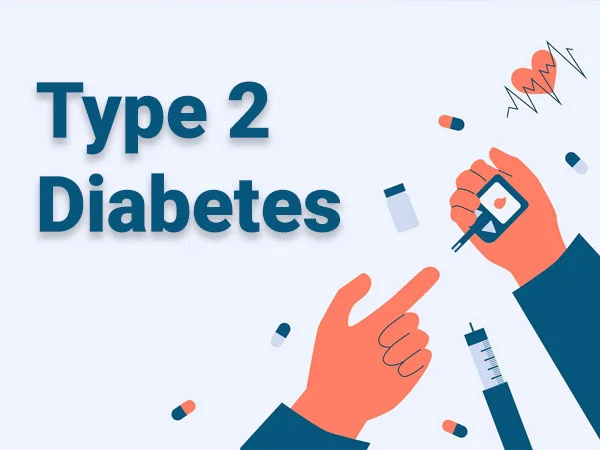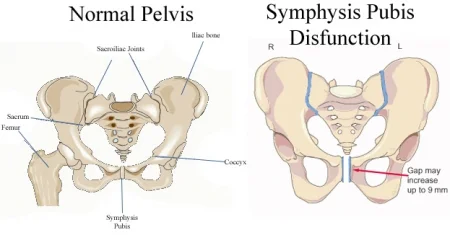Can You Reverse Type 2 Diabetes?
Diabetes is an extremely prevalent yet dangerous illness. The Centers for Disease Control and Prevention (CDC) estimate that over 34 million Americans suffer from diabetes, with type 2 diabetes accounting for 90–95% of cases. Prediabetes, a condition that precedes type 2 diabetes, affects about 88 million people.
Type 2 diabetes has no known cure. However, it might be feasible to reverse the disease to the point where your body doesn’t experience negative consequences from excessive blood sugar levels and you don’t require medicine to manage it.
The key to potentially reversing or controlling type 2 diabetes is adopting good lifestyle choices, such as eating a well-balanced diet, exercising frequently, and reaching and maintaining a healthy weight. Other lifestyle modifications, including quitting smoking, reducing stress, getting adequate sleep, and consuming less alcohol, may also be beneficial. For some, though, this is still insufficient, and medication is required to control the disease.
Table of Contents
Is Type 2 Diabetes Reversible?
Since a person with diabetes is constantly in danger of acquiring high blood sugar due to genetic factors and underlying issues with their beta cells, doctors do not discuss treating the disease.
However, type 2 diabetes can be kept under control by putting it into remission with medication. To make sure it stays that way, you will still need to continue your treatment. If not, blood sugar levels can quickly increase once more.
After quitting diabetes medication for three months or more, a person is said to be in remission if their A1c is less than 6.5% or less than 48 mmol/molTrusted Source.
Remission, however, does not imply that diabetes has disappeared. To maintain remission, you will need to control your blood sugar levels through lifestyle changes. To make sure the levels are suitable, you will also need to go to follow-up consultations. You might need to take additional medication if your blood sugar levels increase.
How can I get into remission?
You can enter remission with a variety of medical treatments and lifestyle changes.
Loss of weight
Maintaining a moderate weight is the greatest way to enter remission since too much fat alters the body’s ability to make and use insulin.
This should ideally be done as soon as the diagnosis is made. However, remission has been seen in some patients up to 25 years following diagnosis.
- A person who loses 7% of their body weight and has a high body mass index (BMI) could observe:
- increases in blood sugar levels
- reduced likelihood of problems and, if they are taking medication, decreased need for it
Among the strategies for controlling type diabetes are dependable Source:
- keeping an eye on the patient blood sugar levels
- losing weight, if prescribed by a physician, exercising, eating a balanced diet, and sometimes using insulin or medicine
Take a physical
In addition to helping you lose weight and begin to reverse your symptoms, starting an exercise regimen is crucial for your general health. Seek assistance from your medical team in creating a plan, bearing in mind the following:
- Start slowly: If you aren’t used to exercising, create realistic goals. For instance, start with a few quick walks each day and progressively increase the length and level of difficulty.
- Walk swiftly: One of the best ways to acquire exercise is to walk quickly. Walking briskly is simple and doesn’t require any special equipment.
- Prevent blood sugar spikes: Certain types of activity may cause blood sugar levels to rise. Before, during, and after your workout, check your blood sugar levels.
- Prevent blood sugar dips: If your blood sugar dips while working out, have a snack on hand.
Examine your nutrition.
You can put type 2 diabetes into remission by eating a diet high in nutrients.
Additionally, it can assist you:
- keep your weight in check.
- Maintain your strength and flexibility, control your symptoms, improve your general physical well-being, and avoid dependence Source: Anxiety and depression are frequent side effects of diabetes.
A diabetes-friendly diet ought to consist of:
- sufficient energy to achieve or sustain a moderate weight and good fats, such as omega-3, which may have anti-inflammatory qualities
- a range of antioxidant-rich fresh or frozen fruits and vegetables
- whole grains
- lean proteins including beans, fish, poultry, low-fat dairy, and soy
- minimal or no alcohol consumption, as long as you consume little added sugar, fat, and salt
You can create a diet plan with the assistance of a physician or dietitian that incorporates the appropriate quantity of carbohydrates for your activity level and lifestyle. One important strategy for managing diabetes is understanding how to control carbohydrates.
Some people adhere to a low-carb diet, which consists of no more than 130 grams (g) of carbohydrates per day, or 26% of their daily caloric intake.
Consult a healthcare expert about goals and tactics that work for you.
Because it can aid in weight loss, some individuals suggest a ketogenic diet for the treatment of type 2 diabetes. However, research Sources have yielded mixed findings, and some studies indicate that it might not be safe for everyone.
Some experts advise concentrating on the quality of carbohydrates rather than limiting their intake. For instance, whole grains can offer nutritional advantages not seen in processed carbohydrates.
For now, creating a personalized diabetes management plan is preferable to following a particular diet.
Regular exercise and dietary decisions are important diabetes management strategies. They can prevent unintended problems, delay the disease’s progression, and assist a patient in going into remission.
Medication
While diet and exercise are effective ways for many people to manage type 2 diabetes, some people may require medication to help keep their blood sugar levels within the desired range.
This will be contingent upon the following individuals:
- age
- other medical issues
- The purpose of treatment
The following categories of medications can assist in lowering blood sugar levels:
- Glipizide
- glinides
- gliptins
- Sitagliptin
- metformin sulfonylureas
- SGLT2 inhibitors, including gliflozins
- GLP-1s
Additional medications can reduce the chance of complications like heart disease and associated problems:
- Blood pressure is lowered with antihypertensives.
- Statins are used to control cholesterol levels.
- Blood clots can be avoided with aspirin or comparable medications.
Bariatric Surgery
This kind of surgery alters your stomach and digestive tract to restrict your food intake, which aids in weight loss. Although researchers are yet unsure of the precise mechanism, it may help reverse diabetes in ways other than weight loss. According to one idea, it helps your body regulate blood glucose by influencing the hormones in your gut.
After bariatric surgery, researchers predict that up to 75% of patients have a diabetes reversal. Long-term outcomes from gastric banding are inferior to those from gastric bypass and gastric sleeve (also known as sleeve gastrectomy) surgery.
Bariatric surgery is typically a possibility if you have a weight-related health condition, like diabetes, and your BMI is at least 35. It is most effective for those without insulin who have had the illness for five years or less.
It is important to discuss obesity with your physician if you have just received a diagnosis. There are significant dangers because it’s surgery. However, the majority of those who have it done go on to reverse their diabetes.
FAQ
Can type 2 diabetes be reversed permanently?
Diabetes cannot be cured, nor can it be eradicated. However, most people can reverse their diabetes. Reversing diabetes entails closely controlling blood sugar levels until no medication is required, then maintaining that control level with a nutritious diet and regular exercise.
How long does it take to reverse type 2 diabetes?
Depending on the technique, reversing type 2 diabetes may take different amounts of time. Remission takes more time, however, some people can reverse type 2 diabetes in as little as one week. A person cannot be considered to be in remission from type 2 diabetes until they have maintained good blood sugar levels for at least three months without using medication.
What is the best diet to reverse type 2 diabetes?
Dietary guidelines for preventing (and even curing) diabetes Reduce consumption of processed foods, such as refined grains like white rice and white flour, and added sugars. This particularly applies to sugary beverages, such as juices and sodas. The ideal drinks include water, seltzer, and tea or coffee without sugar
Does aging make type 2 diabetes worse?
Diabetes type 2 is a progressive disease that typically worsens with time.
Reference
Sherwood, A. (2024, January 18). Can you reverse Type 2 diabetes? WebMD. https://www.webmd.com/diabetes/can-you-reverse-type-2-diabetes
Ellis, M. E. (2025, January 2). Is type 2 diabetes reversible? Healthline. https://www.healthline.com/health/type-2-diabetes-reversible







